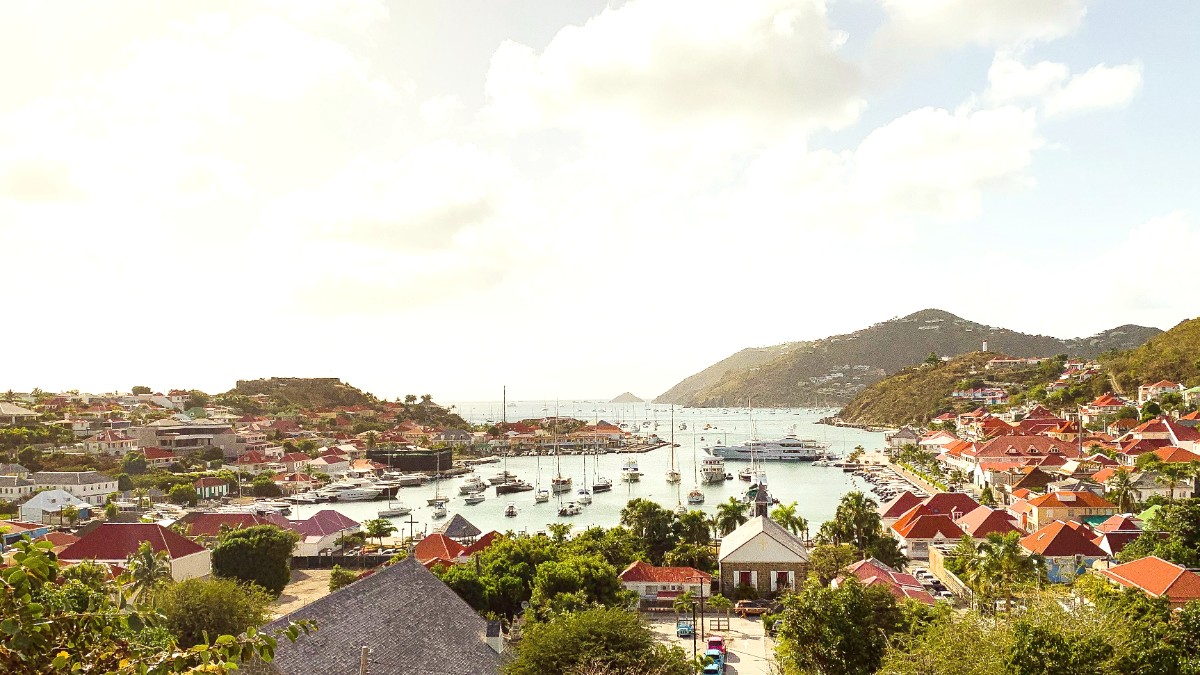
The dry season, running from December to May, shows cooler, drier, and breezier conditions with less rainfall. During these months, average temperatures are slightly lower, ranging from 77-82°F (25-28°C). This period is often seen as the most pleasant for outdoor activities due to the reduced humidity and comfortable breezes.
Skies tend to be clearer, with ideal conditions for beach days and water sports. The wet or hurricane season runs from June to November. This period has warmer, more humid conditions and a greater chance of heavier rainfall. Average temperatures climb to 80-86°F (27-30°C). Rainfall happens more frequently and is often intense.
Special weather considerations focus mainly on hurricanes. The official Atlantic hurricane season is from June 1 to November 30. Peak activity typically is from late August through October.
Travelers visiting during this time should monitor weather forecasts closely. Purchasing travel insurance that covers trip interruption or cancellation due to weather events is a good decision for those traveling during this period.
July to October
Lowest prices, very few crowds, tranquil atmosphere.
Hottest, most humid, peak hurricane season. Many establishments close.
Mid-May to June & Nov to Mid-Dec
Good balance of weather, fewer crowds, lower prices.
Humidity and rainfall climb towards end of May. Some residual hurricane activity in November.
Mid-December to Mid-May
Ideal weather: less rain, lower humidity, cooler breezes. Many events.
Higher prices for flights, accommodations, and services. Book far in advance.
For beach days and water sports like snorkeling, diving, and sailing, the dry season (December-May) brings optimal clear skies and calmer seas. These conditions make visibility for underwater exploration better and give a more pleasant experience on the water. Hiking is also best enjoyed during the dry season, when trails are less muddy and temperatures remain more comfortable for physical activity.
Fine dining and nightlife options are best during the high season (December-May). This period has the widest selection of culinary experiences and entertainment. While many boutiques stay open year-round, the high season generally has the most complete selection for shopping enthusiasts.
Visit during the dry season (December-May) for clear skies and calm seas.
Dry season means less muddy trails and comfortable temperatures.
High season (December-May) sees the fullest range of options.
High season generally presents the most complete selection.
Hotels and villa agencies maintain robust hurricane preparedness plans.
St. Barthélemy is an overseas collectivity of France. Its entry requirements generally follow those of France for short stays. However, St. Barts is not formally part of the Schengen zone, it works similarly for practical purposes related to EU freedom of movement. Travelers should confirm their specific visa requirements based on their nationality before planning a trip.
Many nationalities enjoy visa-free entry for short stays. Here are some examples:
For entry, generally have these documents ready:
St. Barthélemy is not a budget destination. True budget travel is challenging here due to the island's focus on luxury tourism. However, visitors can handle costs across different travel styles.
A medical check-up before travel to St. Barthélemy is a good idea. No specific vaccinations are needed for entry from most countries. However, routine vaccinations, like MMR, DTP, Varicella, Polio, and Flu, are recommended. Consult your doctor for personalized recommendations, which may show Hepatitis A, Hepatitis B, and Typhoid.
High-SPF sunscreen, Wide-brimmed hats, and shade prevent skin issues.
Insect repellent with DEET or picaridin prevents bites.
Stick to reputable restaurants; avoid fish known to carry the toxin.
Centre Hospitalier de Bruyn
St. Barthélemy has a small public hospital in Gustavia. This facility has basic medical services, emergency care, and a hyperbaric chamber.
Several private clinics and doctors are available, many of whom speak English. Pharmacies are located in Gustavia and St. Jean.
For emergencies, dial 17 for police or 18 for fire/ambulance services.
Tap water undergoes desalination and is considered safe to drink.
Many visitors prefer widely available bottled water for taste or extra caution.
High standards of food hygiene are typically maintained, making foodborne illness rare.
St. Barthélemy has a very low crime rate and remains extremely safe for tourists. Violent crime is rare. Petty crime, like opportunistic theft from unlocked cars or unattended belongings, can occur.
Manage your expenses effectively with these tips:
Staying in accommodation with a kitchen means you can utilize local supermarkets for some meals. Bringing gourmet items from home is also an option.
Enjoy spending time at numerous public beaches, hiking to natural pools, or exploring Gustavia's harbor on foot to cut daily costs.
Take advantage of St. Barts' duty-free status for alcohol, perfume, and luxury goods, meaning items may be cheaper than in many other countries.
Highly recommended insurance should cover medical emergencies, emergency evacuation, and trip cancellation or interruption. Insubuy and SafetyWing are good options.